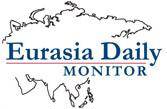At the annual Munich security conference last weekend, Russia received as little attention as it had attracted at the Davos World Economic Forum in the previous week.
Russia’s dwindling security profile is determined by its economic ills, but distinctly sharpened by the weakness of its leadership. Every benefit of the doubt was given to Medvedev by his Western partners, but his message of “modernization” rings increasingly hollow. The Institute of Contemporary Development (INSOR), a think-tank working under Medvedev’s patronage, last week published a report on Russia’s desirable future, which portrays a mature democratic state that will upgrade its partnership with NATO to full membership. The report provides no roadmap for reaching that barely believable goal, but it strongly emphasizes that innovative economic development is possible only through a profound democratization of the political system. Medvedev’s “modernization” dares not to set any targets in this direction, however, it still comes out as the only politically possible anti-Putin project. Putin once enjoyed small moments of cutting Medvedev down to size, but now it is becoming truly necessary for him to remind him who is the boss. Such reminders, however, fail to impress the political elites who observe at close quarters his denial of irrepressible change.
Baev, Pavel K. (2010) Russia Finds Itself Passed its Security Prime, Eurasia Daily Monitor. 8 February.







